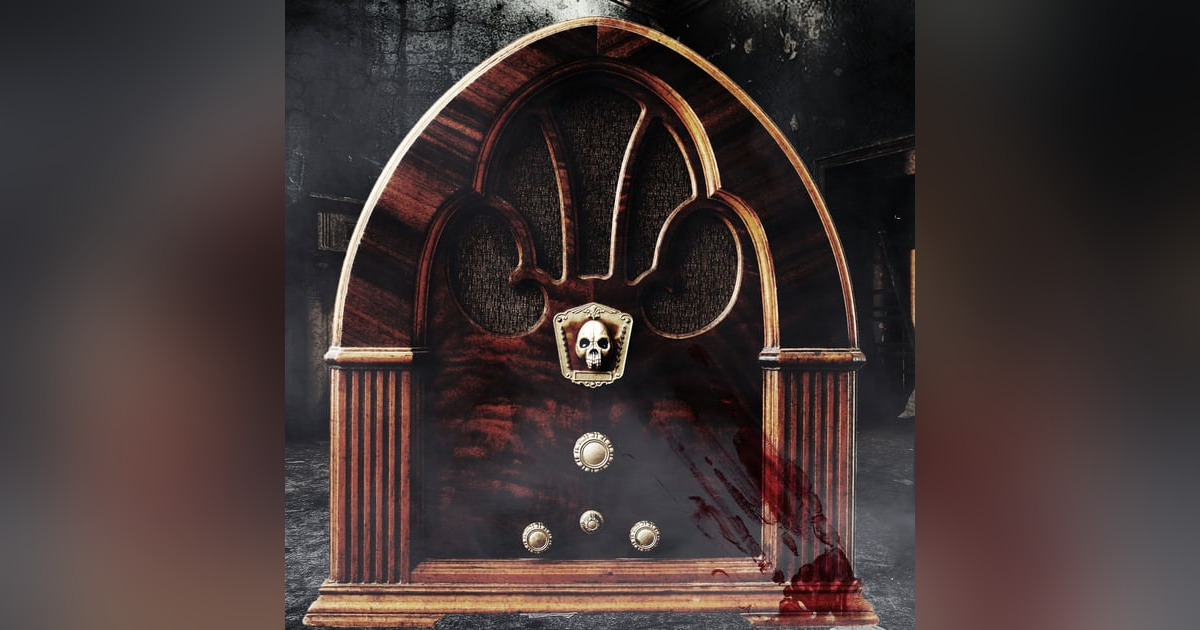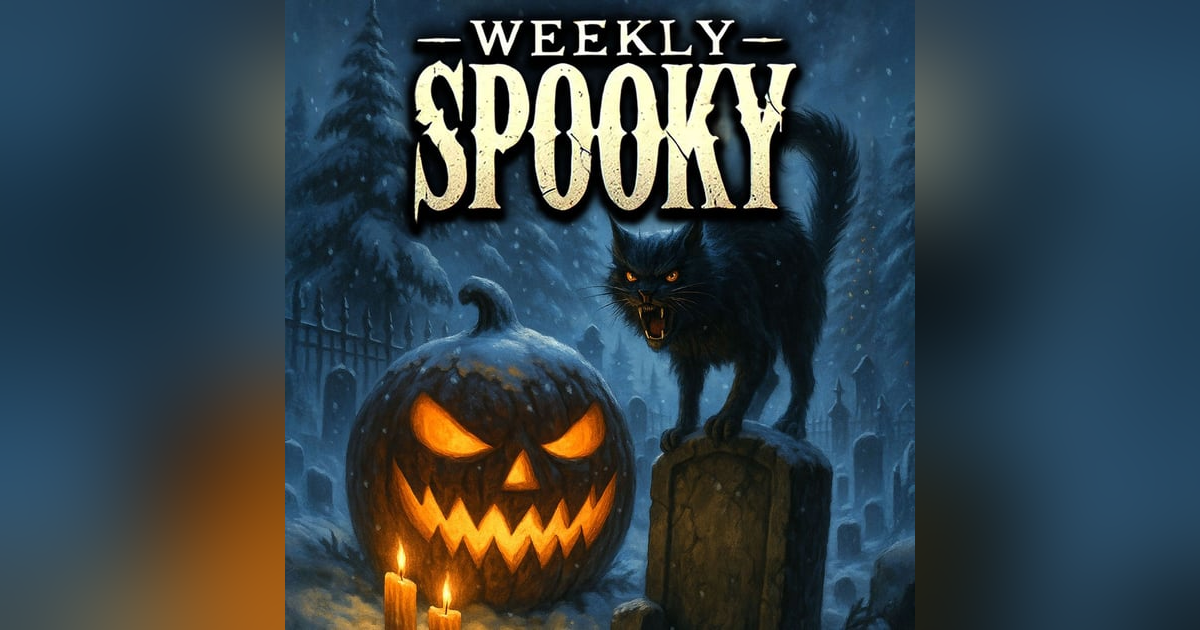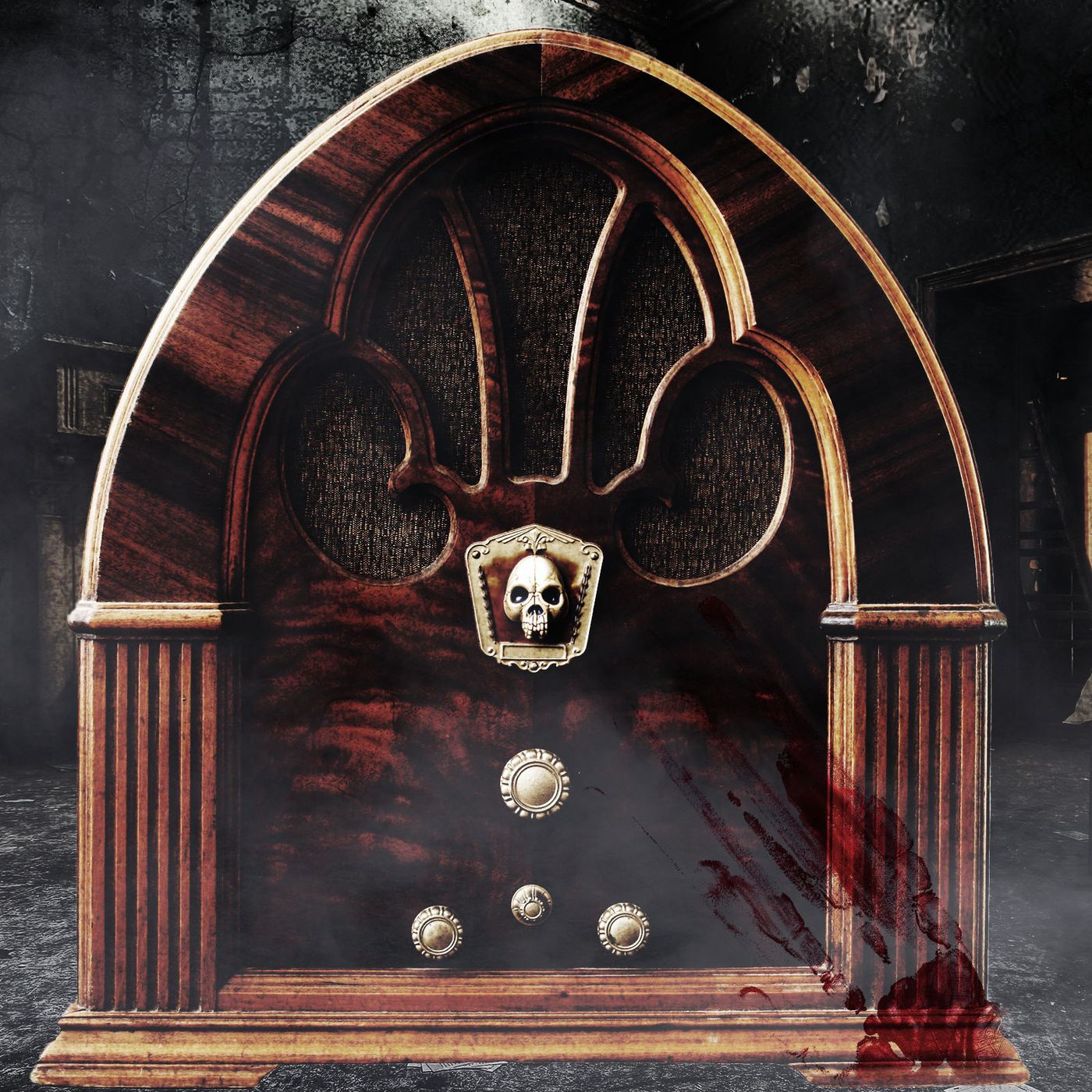Unknown Broadcast | "Mirage"

The episode, titled "Mirage," immerses listeners in a chilling tale narrated by Arch Oboler, emblematic of the show's series of unusual and unsettling narratives. The ambience is set with personal reflections on the reality of good fortune and the facade that can accompany it, leading the audience into a world where deception lurks beneath the surface of daily life.
As the story unfolds, we are introduced to the central characters, Carl and Linda, who are attending a social gathering at a coastal estate. The dialogue highlights the tension between Carl’s work-centric lifestyle and Linda's desire for deeper social connections. Their conversation meanders through various topics, blending mundane discussions about parties, societal expectations, and the changing seasons while juxtaposing a profound sense of unease as they take a walk on the beach. The calm ocean serves as a deceptive backdrop, contrasting with the inner turmoil of the characters as they confront their personal limitations and fears.
The narrative takes a turn when they encounter an old man sitting alone on the beach, writing names in the sand. The old man's actions provoke curiosity and fear in Carl and Linda. As the moonlight flickers in and out, the man writes names—including theirs—drawing them into a surreal and eerie experience. The tension escalates as Carl experiences dizziness and Linda feels a deep connection to the old man’s mysterious activity. Their reality bends as the man’s cryptic writings allude to their identities and maybe even their fates.
As the old man’s presence becomes more significant, Carl and Linda grapple with their own mortality and the weight of their choices. Linda's health fluctuates as they confront the possibility of their lives being tethered to the enigmatic names being inscribed in the sand. The surrealism intensifies when Carl and Linda come to believe that the old man's writing could predict their futures—sparking a dual exploration of existential dread and the search for meaning in their lives.
In a moment of hysteria and clarity, they contemplate their lives and the ephemerality of time. The narrative explores deeper philosophical themes around living fully and embracing the present, juxtaposing that against the weight of societal expectations and personal ambitions. As they begin to feel the burden of impending outcomes, Linda discovers a sense of liberation in knowing her potential timeline, illuminating a path to self-discovery and personal desires that had long been overshadowed by duties and conventions.
The conclusion of the story leaves listeners with a profound reflection on the nature of life, love, and the longing for freedom amidst constraints. Carl realizes that the mirage isn't just about the fleeting happiness of life but also about the false permanence of grief and dread many people believe in. The closing rates a poignant reminder to cherish the present and live life to its fullest, moving beyond the fears that often confine individuals to their own cages.
Through "Mirage," the episode artfully intertwines rich character development, poignant dialogue, and philosophical musings, crafting a hauntingly beautiful narrative that resonates long after the show concludes. The storytelling technique emphasizes the unique qualities of radio drama, drawing listeners into a visceral experience that reflects not just on the characters’ lives but also prompts introspection on their own realities.
🎧 LISTEN NOW and subscribe for spine-tingling horror stories every week!
🎉 Unlock exclusive bonus episodes and support the show on Patreon!
👉 WeeklySpooky.com/Join
📬 Contact Us / Submit Your Horror Story!
- Twitter: @WeeklySpooky
- Facebook: facebook.com/WeeklySpooky
- Email: WeeklySpooky@gmail.com
🎵 Music by Ray Mattis 👉 Check out Ray’s incredible work here !
👨💼 Executive Producers: Rob Fields, Bobbletopia.com
🎥 Produced by: Daniel Wilder
🌐 Explore more terrifying tales at: WeeklySpooky.com
1
00:00:08.880 --> 00:00:13.199
2
00:00:13.240 --> 00:00:17.280
3
00:00:17.440 --> 00:00:20.920
4
00:00:20.960 --> 00:00:24.160
5
00:00:24.160 --> 00:00:28.280
6
00:00:28.320 --> 00:00:30.679
7
00:00:31.039 --> 00:00:35.439
8
00:00:35.439 --> 00:00:38.679
9
00:00:39.280 --> 00:00:43.240
10
00:00:43.280 --> 00:00:50.039
11
00:00:50.719 --> 00:00:55.759
12
00:00:55.920 --> 00:01:00.479
13
00:01:01.600 --> 00:01:07.879
14
00:01:07.920 --> 00:01:11.840
15
00:01:11.959 --> 00:01:13.319
16
00:01:14.840 --> 00:01:30.079
17
00:01:28.239 --> 00:01:36.280
18
00:01:41.840 --> 00:01:44.439
19
00:01:44.439 --> 00:01:47.519
20
00:01:47.280 --> 00:01:47.920
21
00:01:48.319 --> 00:01:51.519
22
00:01:51.959 --> 00:01:55.079
23
00:01:55.200 --> 00:01:57.359
24
00:01:57.439 --> 00:02:05.519
25
00:02:06.480 --> 00:02:11.919
26
00:02:12.000 --> 00:02:24.479
27
00:02:26.639 --> 00:02:28.960
28
00:02:29.000 --> 00:02:31.039
29
00:02:31.840 --> 00:02:33.639
30
00:02:33.719 --> 00:02:34.719
31
00:02:34.719 --> 00:02:36.400
32
00:02:36.479 --> 00:02:38.800
33
00:02:38.919 --> 00:02:47.240
34
00:02:47.919 --> 00:02:50.719
35
00:02:50.719 --> 00:02:52.400
36
00:02:52.479 --> 00:02:54.639
37
00:02:55.599 --> 00:02:59.599
38
00:02:59.599 --> 00:03:02.039
39
00:03:03.159 --> 00:03:05.000
40
00:03:05.560 --> 00:03:08.840
41
00:03:08.879 --> 00:03:11.120
42
00:03:11.120 --> 00:03:13.639
43
00:03:14.719 --> 00:03:17.639
44
00:03:17.919 --> 00:03:21.039
45
00:03:21.080 --> 00:03:22.520
46
00:03:23.240 --> 00:03:24.360
47
00:03:25.319 --> 00:03:27.199
48
00:03:27.439 --> 00:03:30.560
49
00:03:30.599 --> 00:03:32.759
50
00:03:32.759 --> 00:03:33.680
51
00:03:34.159 --> 00:03:35.000
52
00:03:35.199 --> 00:03:37.680
53
00:03:37.479 --> 00:03:39.560
54
00:03:39.560 --> 00:03:40.159
55
00:03:40.400 --> 00:03:43.400
56
00:03:43.520 --> 00:03:45.199
57
00:03:45.719 --> 00:03:47.759
58
00:03:47.800 --> 00:03:52.360
59
00:03:52.719 --> 00:03:54.639
60
00:03:55.000 --> 00:04:01.120
61
00:04:01.560 --> 00:04:03.240
62
00:04:03.319 --> 00:04:04.240
63
00:04:05.080 --> 00:04:07.520
64
00:04:07.599 --> 00:04:09.639
65
00:04:09.719 --> 00:04:13.000
66
00:04:13.960 --> 00:04:17.360
67
00:04:18.079 --> 00:04:19.480
68
00:04:19.279 --> 00:04:20.560
69
00:04:20.759 --> 00:04:20.879
70
00:04:21.360 --> 00:04:23.079
71
00:04:23.120 --> 00:04:23.920
72
00:04:24.160 --> 00:04:27.800
73
00:04:28.399 --> 00:04:31.879
74
00:04:31.959 --> 00:04:43.120
75
00:04:38.279 --> 00:04:42.079
76
00:04:42.079 --> 00:04:44.680
77
00:04:44.759 --> 00:04:48.399
78
00:04:48.439 --> 00:04:50.360
79
00:04:50.399 --> 00:04:53.839
80
00:04:53.879 --> 00:04:56.839
81
00:04:58.040 --> 00:05:01.079
82
00:05:01.120 --> 00:05:04.199
83
00:05:04.279 --> 00:05:06.600
84
00:05:06.720 --> 00:05:09.360
85
00:05:09.439 --> 00:05:10.920
86
00:05:11.560 --> 00:05:12.439
87
00:05:14.160 --> 00:05:18.040
88
00:05:18.040 --> 00:05:21.639
89
00:05:21.680 --> 00:05:24.199
90
00:05:24.839 --> 00:05:26.839
91
00:05:27.000 --> 00:05:29.720
92
00:05:29.759 --> 00:05:32.319
93
00:05:33.399 --> 00:05:38.560
94
00:05:38.439 --> 00:05:40.360
95
00:05:40.399 --> 00:05:41.120
96
00:05:42.000 --> 00:05:45.040
97
00:05:45.079 --> 00:05:46.839
98
00:05:48.079 --> 00:05:49.759
99
00:05:51.000 --> 00:05:54.600
100
00:05:54.720 --> 00:05:57.160
101
00:05:57.240 --> 00:05:57.920
102
00:05:58.000 --> 00:05:59.959
103
00:06:00.639 --> 00:06:01.720
104
00:06:01.920 --> 00:06:05.800
105
00:06:05.920 --> 00:06:07.319
106
00:06:07.759 --> 00:06:10.160
107
00:06:10.040 --> 00:06:13.959
108
00:06:14.639 --> 00:06:16.040
109
00:06:16.160 --> 00:06:20.040
110
00:06:20.319 --> 00:06:22.720
111
00:06:22.759 --> 00:06:25.680
112
00:06:26.079 --> 00:06:29.639
113
00:06:29.639 --> 00:06:32.040
114
00:06:32.079 --> 00:06:32.600
115
00:06:32.639 --> 00:06:33.879
116
00:06:33.879 --> 00:06:36.639
117
00:06:36.720 --> 00:06:41.959
118
00:06:42.000 --> 00:06:44.399
119
00:06:44.439 --> 00:06:47.040
120
00:06:47.160 --> 00:06:49.920
121
00:06:49.920 --> 00:06:52.639
122
00:06:52.759 --> 00:06:56.959
123
00:06:57.199 --> 00:07:06.199
124
00:07:06.279 --> 00:07:06.879
125
00:07:06.879 --> 00:07:07.879
126
00:07:09.240 --> 00:07:12.560
127
00:07:12.560 --> 00:07:14.319
128
00:07:16.439 --> 00:07:18.000
129
00:07:19.079 --> 00:07:22.600
130
00:07:23.680 --> 00:07:24.240
131
00:07:25.759 --> 00:07:26.720
132
00:07:27.199 --> 00:07:28.000
133
00:07:28.240 --> 00:07:30.399
134
00:07:30.839 --> 00:07:32.439
135
00:07:32.680 --> 00:07:33.199
136
00:07:33.879 --> 00:07:36.720
137
00:07:38.079 --> 00:07:39.639
138
00:07:39.839 --> 00:07:44.040
139
00:07:44.079 --> 00:07:44.319
140
00:07:44.600 --> 00:07:46.480
141
00:07:46.480 --> 00:07:47.720
142
00:07:48.319 --> 00:07:49.560
143
00:07:49.600 --> 00:07:57.879
144
00:07:59.040 --> 00:08:02.000
145
00:08:02.160 --> 00:08:05.680
146
00:08:06.720 --> 00:08:08.439
147
00:08:08.439 --> 00:08:08.720
148
00:08:08.839 --> 00:08:09.160
149
00:08:11.240 --> 00:08:13.800
150
00:08:15.000 --> 00:08:18.399
151
00:08:18.399 --> 00:08:19.959
152
00:08:19.959 --> 00:08:28.839
153
00:08:28.639 --> 00:08:30.920
154
00:08:32.879 --> 00:08:33.840
155
00:08:36.720 --> 00:08:38.360
156
00:08:39.279 --> 00:08:42.320
157
00:08:42.440 --> 00:08:43.480
158
00:08:44.879 --> 00:08:48.399
159
00:08:48.840 --> 00:08:49.279
160
00:08:49.320 --> 00:08:50.120
161
00:08:51.080 --> 00:08:51.720
162
00:08:52.399 --> 00:08:55.399
163
00:08:55.440 --> 00:08:58.360
164
00:08:58.600 --> 00:09:00.720
165
00:09:00.960 --> 00:09:06.799
166
00:09:06.600 --> 00:09:09.879
167
00:09:09.879 --> 00:09:16.080
168
00:09:16.080 --> 00:09:18.360
169
00:09:19.360 --> 00:09:19.519
170
00:09:19.759 --> 00:09:23.480
171
00:09:23.480 --> 00:09:25.559
172
00:09:25.559 --> 00:09:26.480
173
00:09:26.639 --> 00:09:29.840
174
00:09:30.159 --> 00:09:32.919
175
00:09:33.720 --> 00:09:41.600
176
00:09:41.679 --> 00:09:48.320
177
00:09:49.440 --> 00:09:51.840
178
00:09:52.639 --> 00:09:57.559
179
00:09:58.159 --> 00:09:58.480
180
00:09:58.480 --> 00:10:03.519
181
00:10:03.840 --> 00:10:09.039
182
00:10:10.200 --> 00:10:10.399
183
00:10:11.679 --> 00:10:18.720
184
00:10:19.000 --> 00:10:22.480
185
00:10:22.519 --> 00:10:23.039
186
00:10:23.759 --> 00:10:24.720
187
00:10:25.000 --> 00:10:26.519
188
00:10:26.559 --> 00:10:29.039
189
00:10:28.919 --> 00:10:32.559
190
00:10:32.679 --> 00:10:34.000
191
00:10:35.799 --> 00:10:40.960
192
00:10:41.039 --> 00:10:42.279
193
00:10:43.480 --> 00:10:45.360
194
00:10:47.480 --> 00:10:51.320
195
00:10:54.000 --> 00:10:55.480
196
00:10:55.759 --> 00:10:58.240
197
00:10:58.320 --> 00:10:59.720
198
00:11:02.000 --> 00:11:06.720
199
00:11:06.720 --> 00:11:10.120
200
00:11:11.639 --> 00:11:21.159
201
00:11:21.320 --> 00:11:22.320
202
00:11:23.519 --> 00:11:28.120
203
00:11:29.759 --> 00:11:39.039
204
00:11:39.559 --> 00:11:46.080
205
00:11:47.080 --> 00:11:52.679
206
00:11:52.679 --> 00:11:53.720
207
00:11:54.200 --> 00:11:57.840
208
00:11:57.919 --> 00:12:02.679
209
00:12:04.279 --> 00:12:06.399
210
00:12:06.639 --> 00:12:07.000
211
00:12:07.039 --> 00:12:09.240
212
00:12:09.399 --> 00:12:12.840
213
00:12:12.879 --> 00:12:14.919
214
00:12:14.960 --> 00:12:18.679
215
00:12:18.720 --> 00:12:22.159
216
00:12:22.159 --> 00:12:24.279
217
00:12:24.799 --> 00:12:26.639
218
00:12:26.720 --> 00:12:27.679
219
00:12:27.559 --> 00:12:29.600
220
00:12:30.440 --> 00:12:36.360
221
00:12:38.320 --> 00:12:44.440
222
00:12:44.799 --> 00:12:45.200
223
00:12:46.039 --> 00:12:47.519
224
00:12:50.360 --> 00:12:51.080
225
00:12:52.000 --> 00:12:54.679
226
00:12:57.799 --> 00:13:02.639
227
00:13:04.240 --> 00:13:04.840
228
00:13:05.440 --> 00:13:10.879
229
00:13:11.960 --> 00:13:12.720
230
00:13:14.000 --> 00:13:14.039
231
00:13:15.720 --> 00:13:20.399
232
00:13:20.440 --> 00:13:25.759
233
00:13:26.559 --> 00:13:27.399
234
00:13:31.320 --> 00:13:34.840
235
00:13:35.720 --> 00:13:39.159
236
00:13:57.519 --> 00:13:58.519
237
00:13:59.639 --> 00:14:02.519
238
00:14:03.279 --> 00:14:04.000













